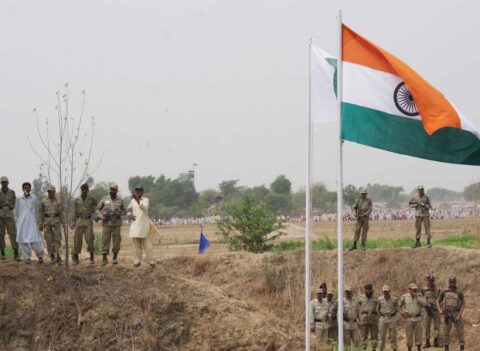Maritime officials have now reportedly issued a warning that the military operations of Iran and Israel in the Middle East are causing navigational systems to be blocked, resulting in the fire of two oil tankers that collided in the Gulf of Oman.
A spokesman for Frontline, which owns one of the vessels, reported that the incident took place early Tuesday, approximately 17 miles off the coast of the United Arab Emirates port of Fujairah, near the Strait of Hormuz.
The UK Maritime Operations, which monitors vessel threats and incidents in the Red Sea and the Gulf of Aden, issued a warning on Monday warning that the military campaigns being conducted by Israel and Iran are disrupting ship navigational systems in the region.
Frontline, which is headquartered in Norway, stated that the collision was the result of navigational complications rather than bombardment.
According to the United Arab Emirates coast guard, 24 individuals were evacuated from the Liberian-flagged Front Eagle and the Antigua and Barbuda-flagged Adalynn.
Israel and Iran launched a succession of attacks on each other late last week, which has resulted in heightened tensions in the region.
Although the war has not yet had a direct impact on the global shipping industry, there has been a recent increase in electronic interference with ship navigation systems in the Gulf region and the Strait.
In a note to clients, the research firm Kpler reported that numerous crude-oil carriers have encountered electronic interference with their navigation systems.
The Strait of Hormuz is a critical maritime corridor, serving as the sole sea route from the Persian Gulf to the open ocean. The Strait is traversed by an average of approximately 20 million barrels of crude oil and oil products each day.
Over the weekend, Israel and Iran conducted strikes on each other’s energy facilities, thereby bringing the conflict closer to an industry that is essential to the global economy and markets.
The risk of greater damage has resulted in an increase in crude prices, and the fighting has impacted tanker traffic and supply flows, despite the fact that attacks on energy infrastructure have been limited thus far.
Iran’s influence over global energy markets is facilitated by its status as a significant oil producer and its proximity to other significant exporters and transit routes.
Esmail Kowsari, a senior commander in the Islamic Revolutionary Guard Corps, issued a warning on Saturday that Iran is contemplating the closure of the Strait. Merchant ships have already been advised by Greek and British maritime officials to steer clear of the passage.
[READ MORE: WSJ Claims Iran Ready to Negotiate After Crippling Israeli Strikes]






